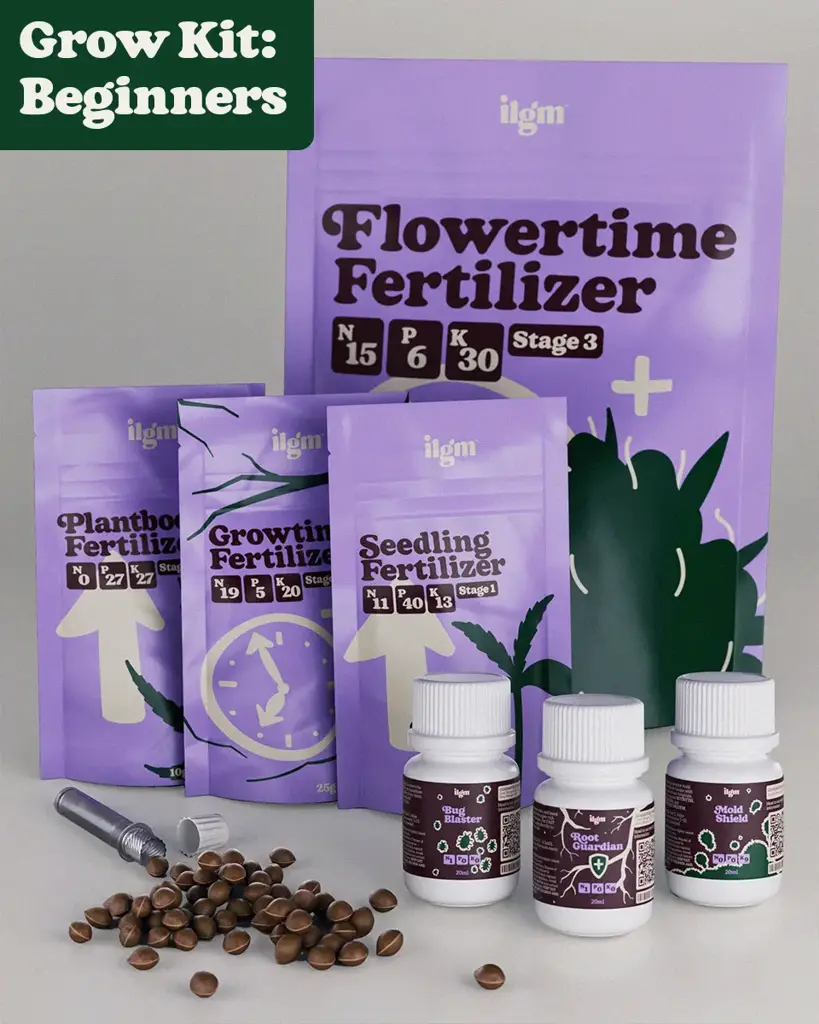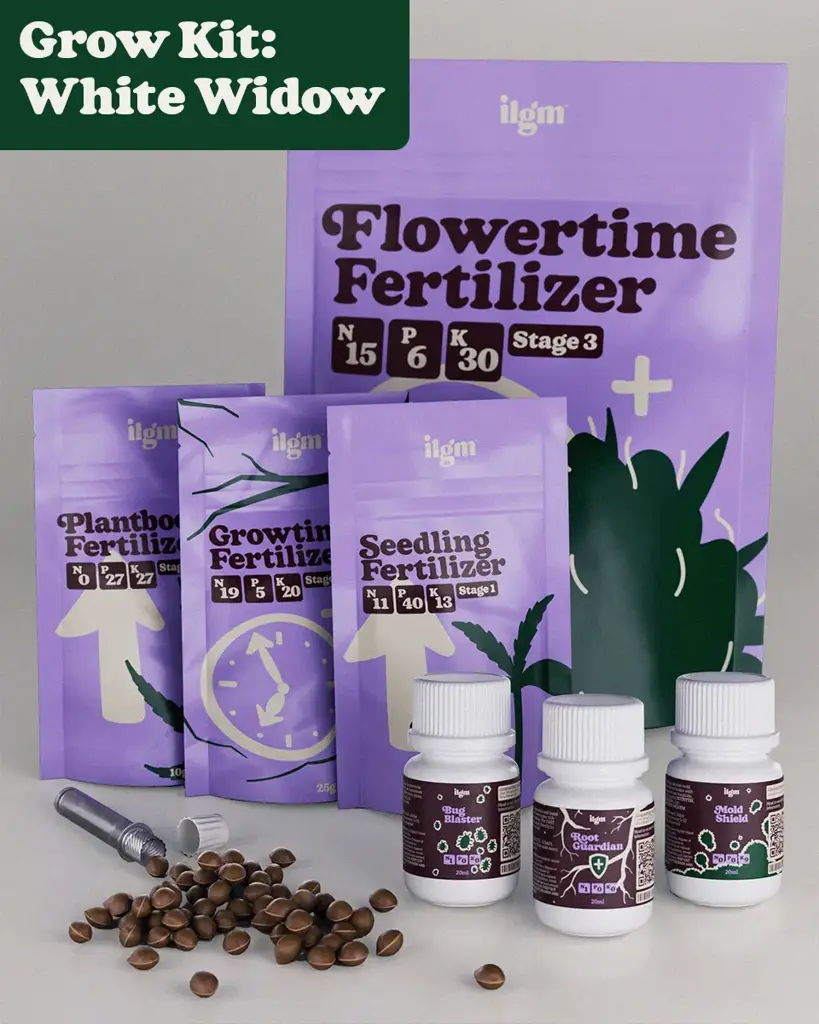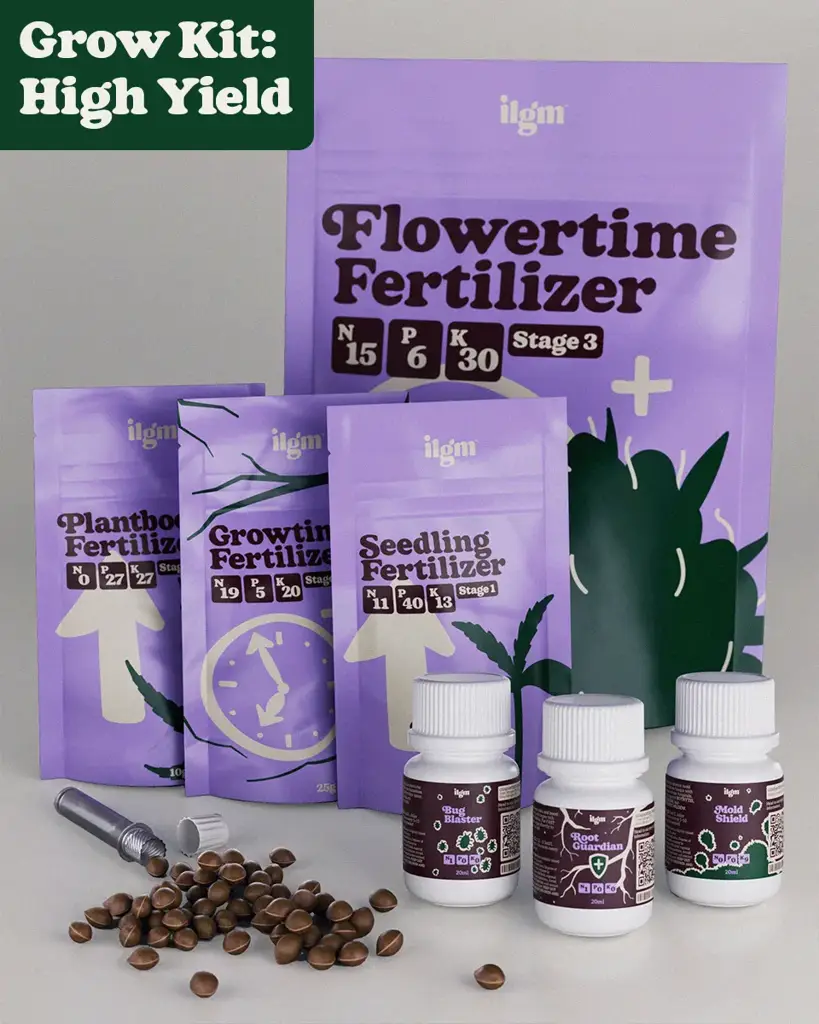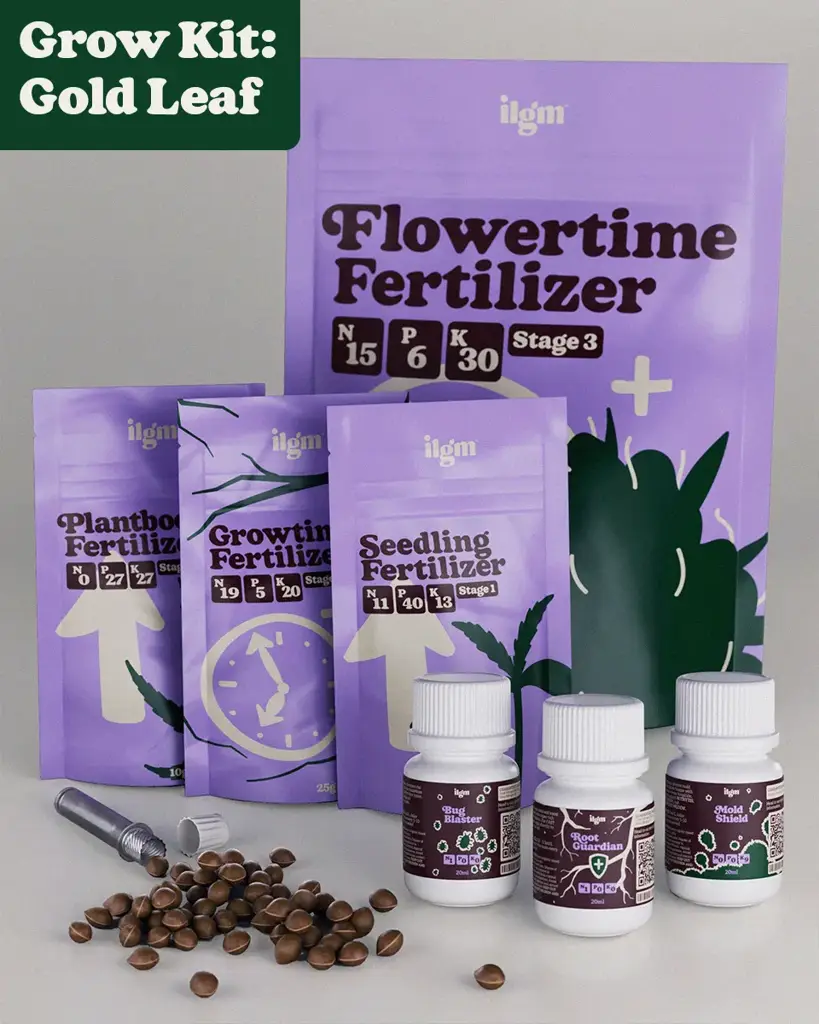- Home
- Canna-culture
- A Beginner's Guide to Participating in Cannabis Research

A Beginner's Guide to Participating in Cannabis Research
Give Voice to Your Choice.
Everyone connected with cannabis has a story to tell. In a growing number of places, researchers can finally ask you to share those stories!
Table of contents
Whether you’re a longtime cultivator or blatant beginner, a heavily-dosed patient or occasional partaker, your unique experience is something nobody else can share.
Research helps us to understand what we have in common and how we differ in our relationships with cannabis. Taking part in these types of studies makes it possible for truths about cannabis (and the people who make up our diverse community) to be known!
Think about offering your own perspective for the greater good. Along the way, you may discover opportunities to try new and interesting products, connect with the people behind your favorite brands, or even make an important contribution to cannabis science.
Types of Research You Can Join
You’ve probably got a picture in your head that comes to mind when you see the word “research”. Maybe there’s a person with a clipboard and a long list of questions? Or perhaps a scientist in a lab, surrounded by cool machines and bubbling beakers? When it comes to cannabis, those stereotypes might hold some truth, but it isn’t always the case. Cannabis research takes many different forms..
Cannabis researchers and those in the industry use all kinds of methods to collect and analyse information, from the most basic to the highly technical. Getting involved in research as a participant or as a researcher can take a lot of shapes. Here are some examples of what we mean:
Consumer surveys
Market research data gives cannabis companies important insight into the tastes, tolerances, and habits of their target audience. Good data supports better business modelling and helps companies with planning and funding. This helps them stand a better chance of surviving in a sometimes very challenging industry.
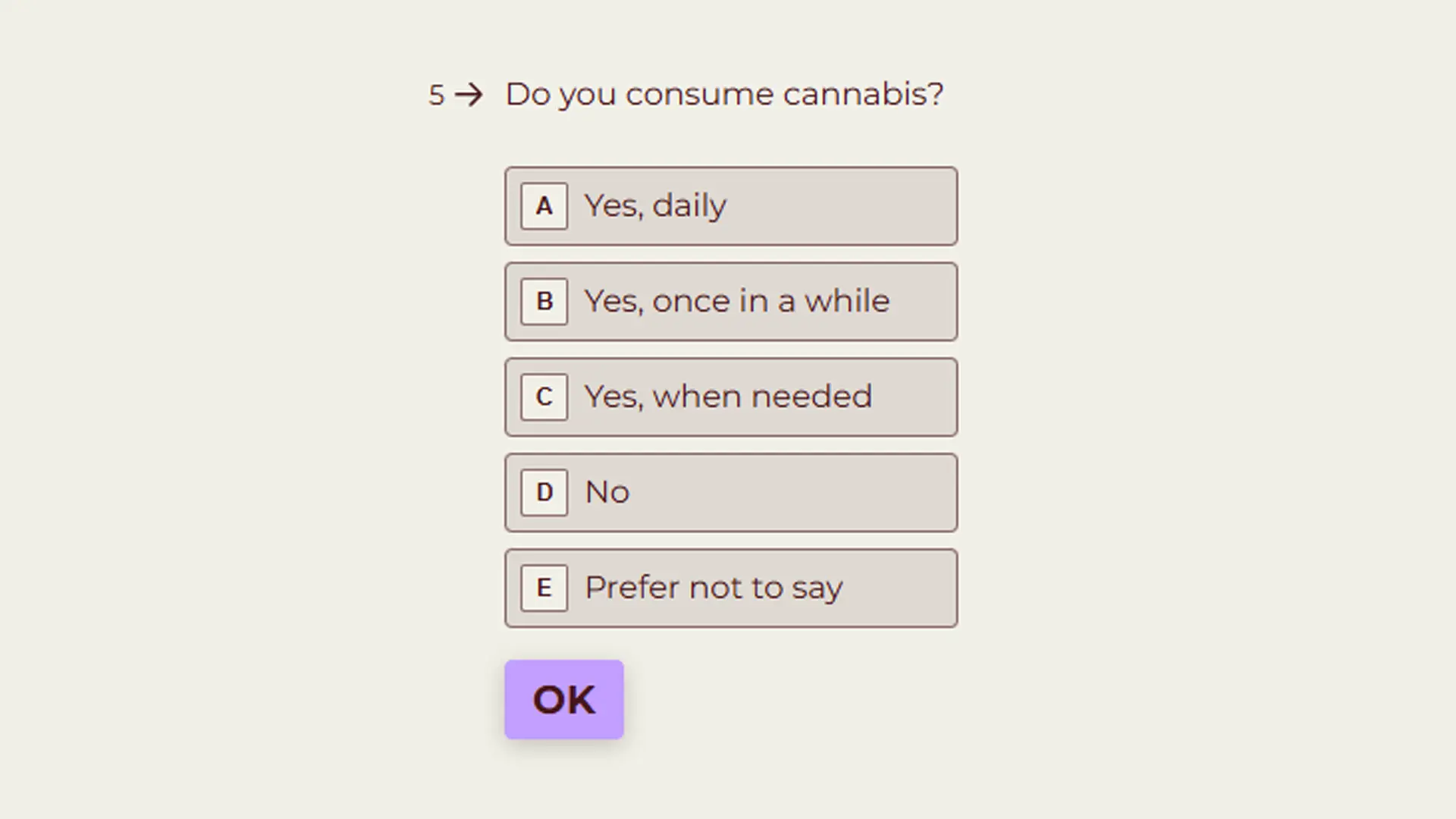
You can sign up for studies on specific products or answer surveys about your consumption preferences and patterns.
Cannabis science also relies on consumer research. Scientists use real-world information about how people use cannabis to design relevant controlled trials.
Everyone wins when companies know how to improve the customer’s experience. Refining the growing/processing stages and directing product development toward popular tastes and market gaps leads to better outcomes.
Medical Studies
Whether or not you have a medical card, doctor’s recommendation, or prescription to use cannabis, you may be eligible to take part in studies on the effects of cannabis in the human body.
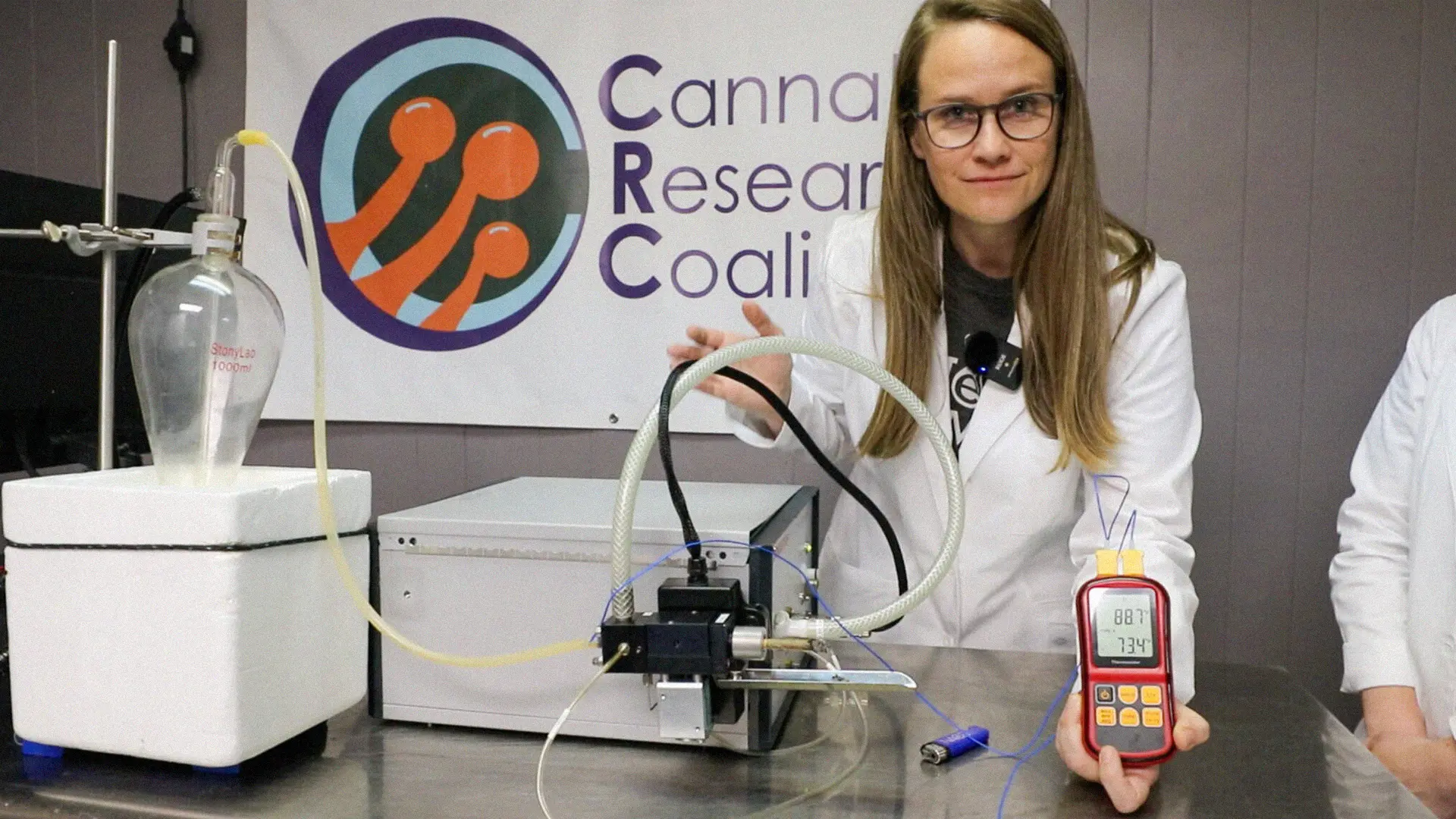 Dr. Allison Justice demonstrates one of the experiments as part of the "Science of Smokeability" studies done by the Cannabis Research Center & Coalition (CRC).
Dr. Allison Justice demonstrates one of the experiments as part of the "Science of Smokeability" studies done by the Cannabis Research Center & Coalition (CRC).
If you are using cannabis for a specific medical purpose, or are interested in helping doctors learn more about the effects of cannabis use for a condition you have, talk with your care team about it.
Agricultural Projects
Got land? Farmers collaborate with agricultural colleges and cannabis research institutions to grow and test everything you can imagine relating to the lives of cannabis plants.
Home-Grow Trials
People who buy and use cannabis cultivation gear can sometimes work with companies to review nutrients/amendments, irrigation systems, lighting, or other tech made for home growers.
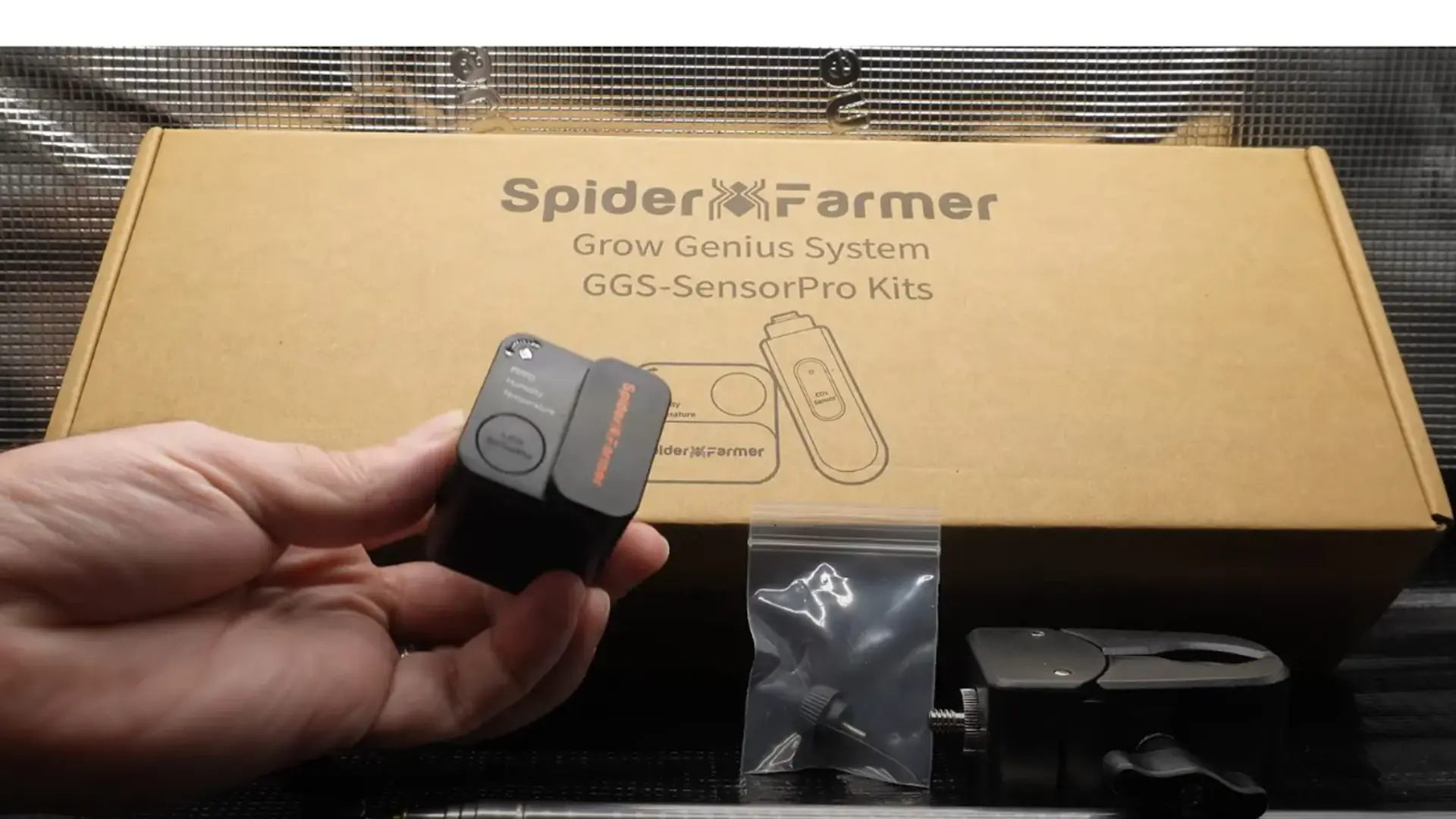
Mostly, the bulk of the research on these has already been completed by the time the company is ready to unveil its new designs or formulas to the public. However, folks with an online audience might still find chances to conduct side-by-side grows and document them as “real-world” proof that the products work well, or outperform their competitors.
Seed developers vary in their strategies for testing out new genetics. You may be able to help validate the outcome of their breeding efforts by providing feedback on your results with their seeds.
Our Bestsellers
Where to Find Opportunities
Signing up to research registries is a first step to getting contacted directly by people looking for someone like you to talk to about cannabis. You can also search for ongoing trials and contact the people responsible to find out if you’re eligible to take part.
Check out the ‘Resources’ section at the end of this article for links!
Cannabis Nonprofits and Advocacy Groups
Join newsletters and get involved with organizations doing work you think is important in the field of cannabis, to hear about studies that intersect with your niche in the community.
Industry Exhibitions and Conferences
Cannabis-centered events are good networking opportunities for researchers. Interested parties can set up displays and meet potential recruits or collect bulk data for later analysis.
Local & Social Media
Gathering a sample group of subjects that is representative of a bigger population can be challenging. Knowing that they are looking for people who use cannabis, researchers will often place ads on social media or in regional cannabis magazines, hoping to reach readers who fit their target demographic(s).
Do It Yourself (or with Friends)
Cannabis research can be as simple as keeping a diary. If you’re honest on the page, these records allow you to learn about yourself and your relationship with the plant.
Actively engaging with a community of other growers is also a big part of the cannabis culture, so gather some pals to share seed orders, phenohunt, and trade cuts (and share harvests) with.
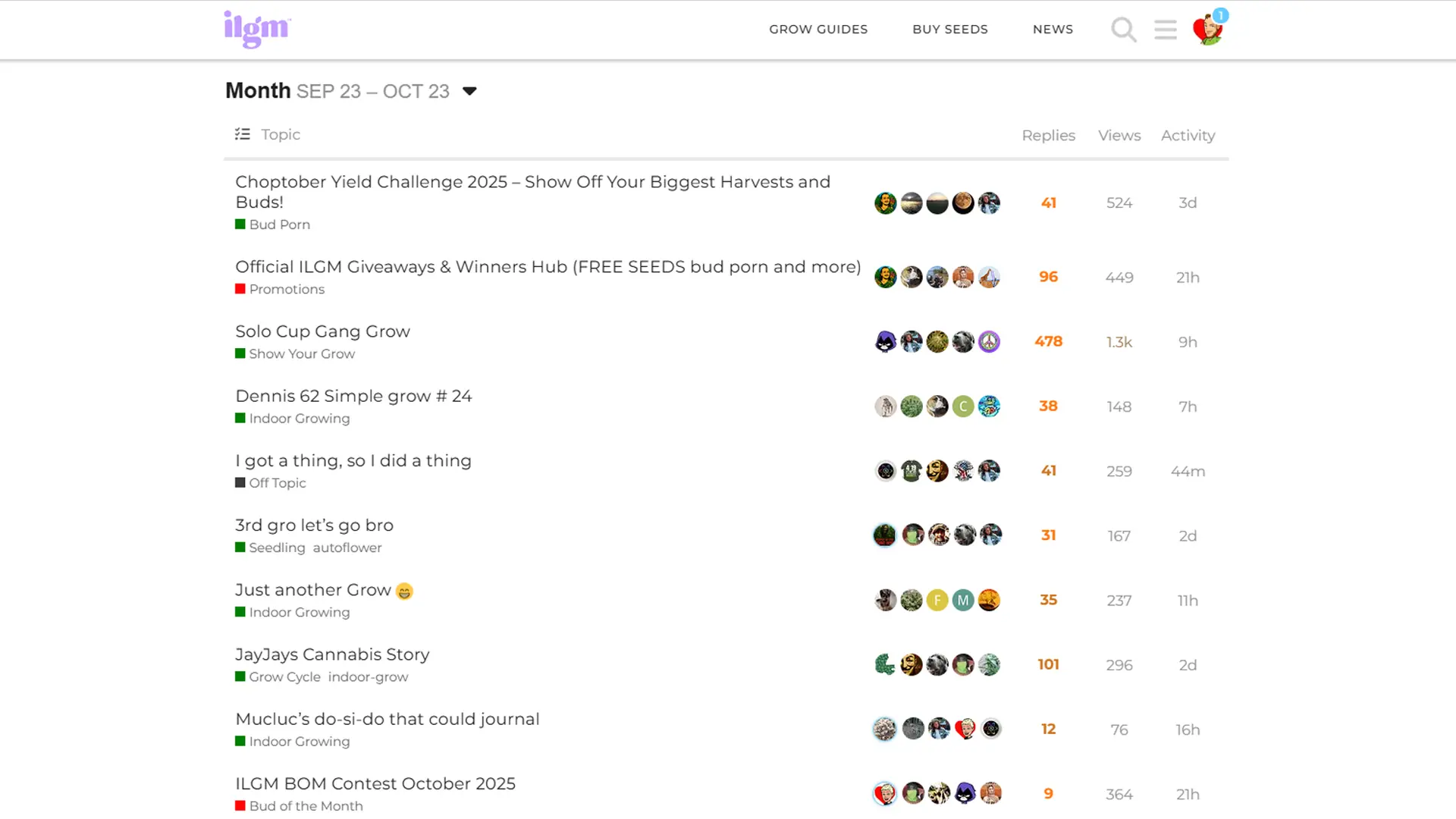 Why not join our active and engaging community of fellow growers on the ILGM forum?
Why not join our active and engaging community of fellow growers on the ILGM forum?
Put your creative heads together: I’m sure you and your collaborators can come up with an infinite number of questions to investigate together!
What to Expect When Participating
Since cannabis research can be as casual as answering a few questions, or as committed as joining a university-backed, science-driven trial, you’d be right to have different expectations for each circumstance.
That said, every legitimate study will be clear about these things:
The general, if not very specific, question(s) they are looking into
Who is qualified to participate
What time commitment is required
How participants’ privacy will be protected
How the data will be used (and how it will NOT be used)
If, how, and when the results will be made available to the public
Should you expect to get paid?
Compensation, if any, is usually specific to the type of study and the level of commitment or risk to participants.
When products are close to being market-ready, they’ve already gone through the safety testing steps required by law. In some places, companies are allowed to provide free or at-cost products in exchange for honest evaluations from real users.
Pay for academic studies is usually minimal, because there are concerns about whether getting money for participating can skew results. People may, consciously or unconsciously, feel there is an incentive to give answers they think the researchers want to hear.
Normally, you can expect to receive an ‘honorarium’ in the form of a small amount of cash, a gift card, or an entry into a draw for a bigger prize (e.g. a higher-value gift card).
Other Considerations
Any time you consent to provide data, it’s good practice to know who you’re talking to and what their motivation is for conducting the research. Making a little effort to check on the character of the organization asking for your information is worth the peace of mind.
Remember, it’s always your right to drop out, especially if anything about the experience makes you feel uncomfortable. Getting a sense of built-in bias in the study, for example, would be a good reason to question whether you want to continue.
It’s ultimately your responsibility to decide if there are potential legal or social costs you might face by answering questions or providing other data relating to cannabis.
Ask yourself, “If this information were to somehow become public, what’s the worst that could happen?” and follow your instincts. Get a lawyer’s advice if you feel strongly about wanting to take part in a study, but have concerns about potential risks.
Final Thoughts - Speaking Truth to Power
These days, research is everywhere. Becoming actively involved can be a rewarding opportunity to direct attention to the questions you think should be prioritized. Sometimes, it’s enough to simply ask if you can volunteer to help solve a problem or answer a question. Your curiosity, openness, and availability not only affirm researchers’ belief in the need for more study but also counteract a lingering atmosphere of stigma around cannabis.
Resources To Participate In Cannabis Research Yourself

Xavier Kief
Xavier Kief, a fierce cannabis advocate & educator, merges science & joy in cultivation. Expert in regenerative growing, mycology & activism
Continue Reading
You might also find these interesting.







